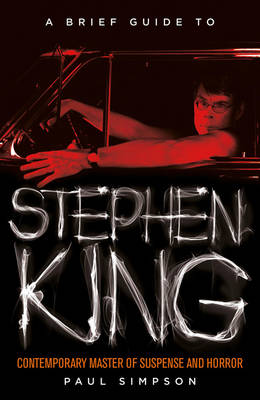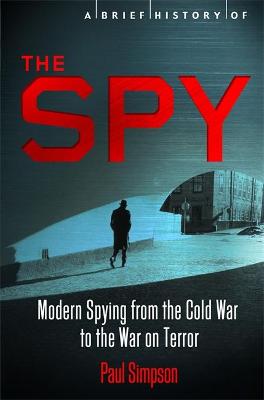Brief Histories
5 total works
What if Dorothy Gale wasn't the only person who went to see the Wizard of Oz?
MGM's landmark 1939 movie The Wizard of Oz, starring Judy Garland, did not mark the beginning of adventures in Oz. Both before and since, dozens of tales have been told of the Marvellous Land of Oz, and its inhabitants such as the Scarecrow, the Tin Woodman, the Cowardly Lion, the Hungry Tiger and Jack Pumpkinhead.
In this fascinating and wide-ranging book, Paul Simpson looks back at the Famous Forty - the original novels by L. Frank Baum and his successors which entranced generations of children with their wonderful world of munchkins, princesses and wicked witches. He examines the many ways in which the stories have been retold in movies - from the silent era to Disney's recent blockbuster Oz the Great and Powerful - and on television, featuring everyone from Tom & Jerry to trades union leaders. On stage, Oz has come to life in the many revivals of The Wizard of Oz musical and the worldwide reign of Elphaba in the smash hit Wicked.
Celebrate the 75th anniversary of the world's best-loved film and the whole magical world of Oz with its vampires, muppets, dragons, living statues and so much more.
From the end of the Second World War to the present day, the world has changed immeasurably. The art of spying has changed too, as spies have reacted to changing threats. Here you will find the fascinating stories of real-life spies, both famous and obscure, from either side of the Iron Curtain, along with previously secret details of War on Terror operations.
Detailed stories of individual spies are set in the context of the development of the major espionage agencies, interspersed with anecdotes of gadgets, trickery, honeytraps and assassinations worthy of any fictional spy.
A closing section examines the developing New Cold War, as Russia and the West confront each other once again.
Everyone has heard the songs from The Sound of Music by Rodgers and Hammerstein. The stage show was a roaring success in New York and London, and the much-loved feature film, directed by Hollywood veteran Robert Wise, continues to be a staple of television schedules 50 years after its release in 1965.
In this fascinating and wide-ranging book, Paul Simpson explores the incredible story of the Von Trapp family and their escape from the Third Reich in all its incarnations, from real-life adventure, to book, to stage, to award-winning film to cultural phenomenon. He discusses the stage show, the many differences that were incorporated into the fictionalisation of the tale, and how that story was brought to the screen. He also looks at the numerous other ways in which the Von Trapp's story has been told, including the two West German movies from the 1950s and the extensive forty-part Japanese anime series from the 1990s, to explain why the story of the Von Trapp family has appealed to so many generations.
Praise for A Brief Guide to Stephen King:
'The best book about King and his work I have ever read' Books Monthly
November 2013 marks the 50th anniversary of the death of Clive Staples 'Jack' Lewis, when a memorial to him will be placed in Poet's Corner in Westminster Abbey. Although perhaps best known as the author of the seven Chronicles of Narnia, published between 1949 and 1954, Lewis also wrote The Pilgrim's Regress, a trilogy of science-fiction novels incorporating Christian themes, and a large number of non-fiction books about his faith, accessible to Christians and non-believers alike. In a survey of the greatest British writers since 1945, the Times newspaper ranked Lewis eleventh, ahead of Salman Rushdie, Anthony Burgess and Ian Fleming.
A Brief Guide to C. S. Lewis explores Lewis's life, from his reconversion to Christianity under the influence of his friend J. R. R. Tolkien, which had such a profound influence on his writing - both fiction and non-fiction - to his marriage to American writer Joy Davidman Gresham and his battle with cancer. He died on 22 November 1963, a day before the first-ever episode of Dr Who, a TV series with many links to his Narnia stories was shown.
Although this Brief Guide ranges well beyond the world of Narnia to explore other aspects of Lewis's life and his other writings, it does not do so - unusually among books on Lewis - from the point of view of Christian scholarship, thereby assuming much knowledge of theology on the part of readers. That Lewis wrote about the problems of praying is significant; the specific texts he discusses and dissects are likely to be of less significance to most readers.
The guide provides synopses of Lewis's fiction, an overview of his other writings, a biography and a look at all the many different versions of his stories that have appeared. In doing so it draws on recent interviews by the author with some of the many talented people who have worked on these adaptations.



